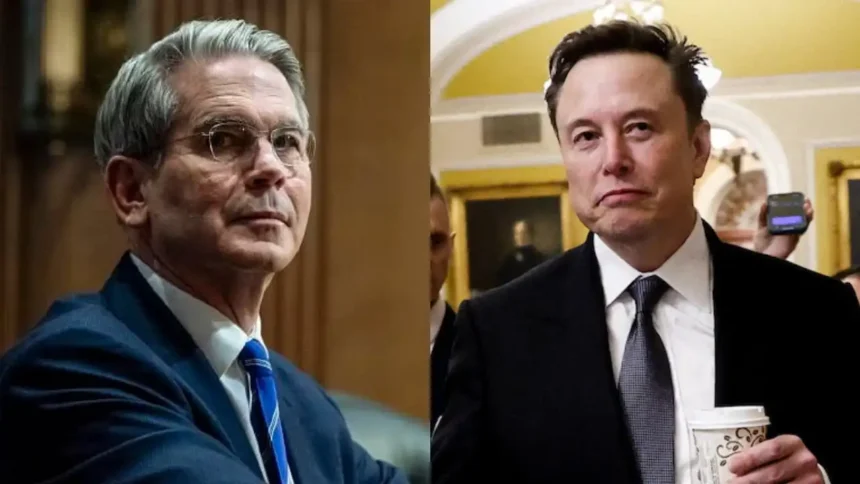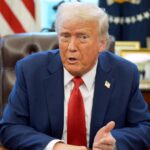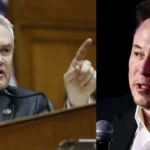A political storm is brewing in Washington, and Elon Musk finds himself at its center.
Senators Elizabeth Warren (D-Mass.) and Ron Wyden (D-Ore.) are demanding a thorough investigation into Musk’s access to the U.S. Treasury’s payment systems.
This unusual development has sparked outrage, raising concerns about government transparency, potential data risks, and disruptions to federal payments like Social Security and Medicare.
How Did Musk Get Access to Treasury Systems?
Elon Musk’s Department of Government Efficiency (DOGE), a Trump-era initiative aimed at slashing federal costs, secured “read-only” access to Treasury’s financial systems.
These systems are no small operation—they oversee trillions of dollars in payments annually, from federal salaries to Social Security checks.
Treasury Secretary Scott Bessent approved this access, arguing it was necessary to identify inefficiencies.
However, this decision reportedly faced stiff resistance from career officials, including Deputy Secretary David Lebryk
His sudden retirement shortly after the dispute has only added to speculation about internal disagreements and the legality of granting such access to Musk’s team.
Critics warn that Musk’s access, even under a “read-only” restriction, poses significant risks.
Treasury systems house personal and financial information for millions of Americans.
Cybersecurity experts argue that even passive access could open the door to unauthorized use or even data breaches.
Adding to the concern is Musk’s global business portfolio. His ventures, particularly Tesla’s significant operations in China, have raised red flags about potential foreign influence.
Could sensitive U.S. government data unintentionally slip into the hands of foreign powers? Lawmakers and advocacy groups think this question deserves serious scrutiny.
Are Federal Benefits at Stake?
The implications of Musk’s involvement go beyond just data security. Lawmakers worry that DOGE’s oversight could disrupt the distribution of critical federal payments.
Programs like Social Security and Medicare serve millions of Americans who depend on timely and accurate payouts.
While officials insist there will be no changes to these programs, skeptics remain unconvinced. Any delay, even unintended, could result in real consequences for vulnerable populations.
The controversy has escalated to legal battles. Advocacy groups argue that granting Musk’s team access violates privacy laws, while unions contend it undermines public trust.
Some experts are also questioning the executive order that made this access possible, suggesting it may exceed constitutional limits.
Elizabeth Warren and Ron Wyden have called for the Government Accountability Office (GAO) to investigate, demanding a clear explanation of the safeguards in place.
They argue that Musk’s unprecedented access to these systems threatens the integrity of federal operations.
Protests have erupted outside the Treasury Department, with hundreds rallying against Musk’s perceived “takeover” of federal systems.
Demonstrators and lawmakers alike are voicing their outrage, accusing the government of prioritizing corporate interests over public welfare.
Meanwhile, Musk took to social media platform X to defend his role. He claimed that “following payment flows” is a necessary step to eliminate fraud and inefficiency.
Yet, his statement has done little to calm growing concerns about the risks involved.
Final Thoughts
The investigation into Musk’s access is gaining momentum. The GAO will play a central role in determining whether this decision aligns with legal and ethical standards.
Watchdog groups are also stepping in, calling for immediate restrictions on DOGE’s access to ensure data security and public accountability.
This debate goes beyond Musk—it’s a broader discussion about privatization in federal systems and the balance between innovation and oversight.
Will Musk’s involvement lead to a more efficient government, or is this a dangerous overreach into public operations?
The answers will shape not just Musk’s legacy, but the future of how private entities interact with federal agencies.
Stay tuned as the investigation unfolds and the stakes rise in this high-profile showdown.
Clark is a 26-year-old expert working for consumer protection, Clark has dedicated years to identifying and exposing fraudulent schemes. He is working with NGOs to help people who are victims of scams. In his free time, Todd plays football or goes to a bar.







